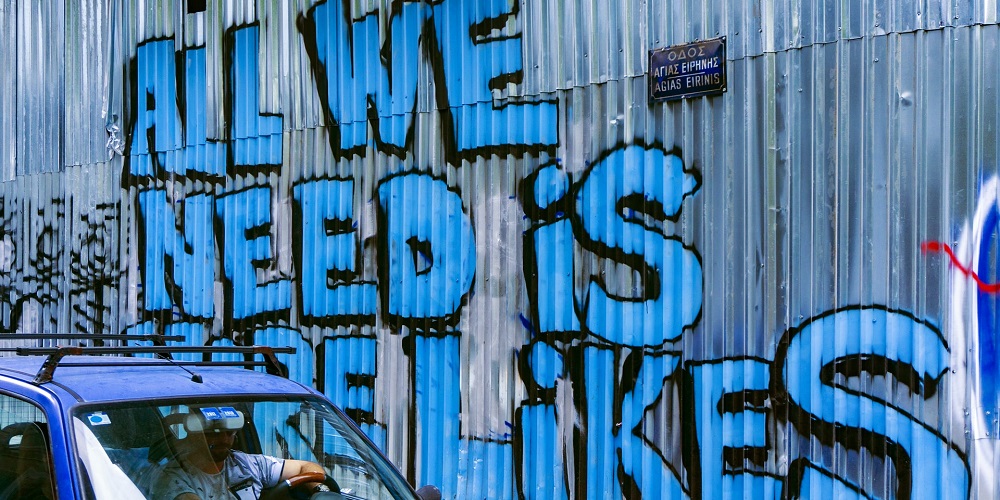
My recent experience teaching anthropology at various academic institutions in the New York City area was a vivid illustration of the recent worrying shift in public perception toward science observed by different commentators (e.g., lack of basic fact-checking behaviors; truth denial; purposeful misinformation; self-censorship).
With the COVID-19 crisis, we are witnessing the second wave of reactions toward science that initially arose as a surge of scientific positivism manifested through increased reliance on scientists and facts to understand the SRAS-CoV-2 virus pandemic. In most countries, science-based public policies were implemented to reorganize our behavior; scientists (or more accurately medical doctors) became the dominant guests in all media, and some absolutely essential professions that guarantee our health and daily lifestyle were universally recognized.
Unfortunately, through this new exposure, everyone could discover some of the darker “behind-the-scenes” aspects of Science, ubiquitous to most fields. Researchers started to send conflicting messages in ego-driven arguments; competing interests between private pharmaceutical industries started to promote different solutions and even debates about scientific paradigms (evidence-based medicine vs empirical clinical epidemiology could be glimpsed.
From my perspective, the confluence of political rhetoric with scientific reasoning rapidly collapsed rational communications and set us back to a state of confusion and mistrust. The lack of competent leading voices in the international scientific community created a space where random individuals could weigh as heavily as experts through simple click-bait mechanisms on social media.
As an anthropologist and a research scientist, my attitude has been to voluntarily restrict my voice to the private sphere of relatives and friends to limit the general noise.
My initial strategy was to help to navigate this stream of information with tentative answers on topics within my area of interest, such as how to read simple statistics in epidemiology or clarify the difference between a medical researcher and a clinician. However, it appeared very quickly that supplying accurate facts to non-specialists was not the most efficient way to communicate. This fractured interaction is reminiscent of the aftermath of the US 2016 presidential election.
Similarly, the complexity of the Covid-19 crisis cannot be addressed by trying to conform our answers to the dualistic opinions presented by the gated traditional media, or governments’ erratic messages, such as confinement / no confinement, mask / no mask, this drug / that drug, testing / not testing, health /economy. This simplistic polarization that pervades most news is increasingly dangerous since most of us are still influenced by these efficient click-bait marketing and advertising strategies. In our age of information availability, this is an unacceptable communication breakdown.
Crises should be opportunities to reframe conversations around broader issues of political decisions related to research budgets, public spending, market-driven policies, private vs public research funding, among others. Complex topics also require long-term timeframe to provide sustainable solutions, as opposed to short-term, often market-driven, band-aids. Global frameworks should be defined by human metrics integrating variables of physical and mental well-being, social stability, and sustainable economic opportunities.
Obviously, I am not the first to make such observations. Unfortunately, only a minority of academics, scientists, a handful of journalists, and some “free thinkers,” have abandoned traditional media altogether to promote alternative views. New information outlets are slowly developing as an antidote to misinformation and manipulation, with well-documented independent blogs and journals, hour-long podcasts, or other long-format video interviews. We need more strong rebuttals to nonsensical or sensational media declarations,
Today, the ISC is offering some valuable, robust resources and guidelines as illustrated by Daya Reddy’s recent letter. Thank you all for that. With the emotionally charged environment created by the world-wide confinement and the rising anxieties about tomorrow’s bleak economy, I strongly believe that international organizations such as the ISC and their partners would be an ideal platform to lead these subtle discussions and actively contribute to shaping the public debate.
The goal should be to include everyone in a nuanced discussion, to bridge back the growing tribal divide unfolding rapidly and build trusted analytical tools, free of lobbying, self-censoring, political correctness, or other biases. Promoting robust and transparent scientific methods, supported by an independent research environment would be a more valuable strategy to move forward so that consensual, sustainable policies informed by science can emerge.
Want to be part of the conversation around the issues Daya Reddy’s letter to members and Stephen Naji op-ed raise? Submit your response to the Global Science Portal.
Find out more about anthropological sciences through the ISC’s member, the World Anthropological Union.
Photo by Daria Nepriakhina on Unsplash